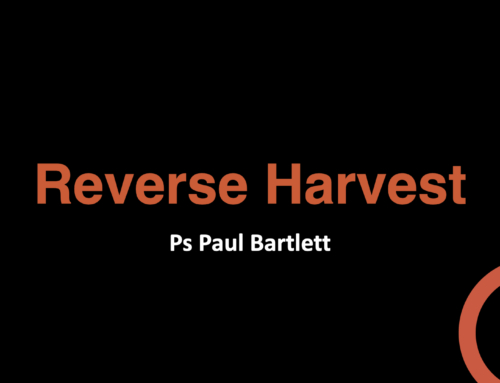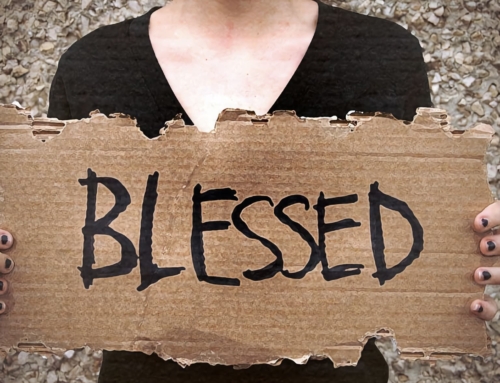
Poverty: How should the church respond?
By Jenny Sinclair
T4CG’s Founder and Director Jenny Sinclair met with the Churches Together England (CTE) Enabling Group on 24 March 2023. Jenny was asked to lead a discernment session incorporating a theological reflection on the church’s response to poverty in the context of the theme of this particular gathering, “The Cost of Living Crisis”.
Exploring the causes of poverty and the relationship of the Church with poor communities, she helped the group read the signs of the times and discern how churches are called to respond in the new era. The Enabling Group brings together CTE Member Churches, Charities and Networks in Association and other ecumenical representatives (members listed here).
Introduction
It really is an honour to be here with you in your process of discernment. Isn’t it a gift to be able to do this together in this wonderful diversity of God’s people, here in person.
I’m grateful to Simeon and Paul for their presentation yesterday. This morning, we are going to explore the causes of poverty too – but through a very different lens. I won’t be using graphs or data – and I warn you I will be challenging here and there.
Just to say a little about my background – I grew up in an Anglican clergy household, but became estranged from the Church, before a conversion experience in my mid-twenties after which I was received into the Catholic tradition.
I am the founder and director of Together for the Common Good. The first idea came to me in 2011 when I experienced a movement of the Holy Spirit in my life, and was prompted to explore a ground-breaking ecumenical partnership [1] between church leaders in Liverpool over a twenty year period between 1975 and 1995, in which my father was a leading figure.
That partnership played an important part in the renewal of the city at a time of division and political confusion, and also stimulated a new spirit of ecumenism. Their partnership had two defining features:
- the posture of the “outward-facing church” engaging with the life of the neighbourhood, and
- the theological tradition of Catholic Social Thought [2], which is centred around the dignity of the human person and solidarity with the poor.
Together for the Common Good was inspired by their model. We are a small national charity dedicated to spiritual and civic renewal. But this is a new time with different challenges and a new approach is needed. We work ecumenically and we’re independent of any denomination.
So Together for the Common Good reads the signs of the times to help people across the churches build common good by becoming outward-facing and relational, to understand their distinctively Christian civic vocation. We call this “common good thinking.” [3] We work across the country with churches, leaders, schools, and other organisations.
Just to say how we define common good: not as a utopian ideal but as something we build – it is the shared life of a society as we work together across our differences for mutual flourishing, each of us taking responsibility, according to our calling and ability. [4] That’s as much as I can say about our work just now: the focus today is on poverty. But please do get in touch if you’d like to learn more about what we do. So I’m going to talk for about half an hour with some silence along the way, then we will have time for discussion.
Let’s stop first for a moment of quiet.
***
A moment of silence
Come Holy Spirit, we welcome you here in our midst. Bless us with your spirit of wisdom and discernment.
For in fact the body is not one member but many. And the eye cannot say to the hand, “I have no need of you”; nor again the head to the feet, “I have no need of you.” No, much rather, those members of the body which seem to be weaker are necessary. And those members of the body which we think to be less honourable, on these we bestow greater honour. But God composed the body, having given greater honour to that part which lacks it, that there should be no schism in the body.
I Corinthians 12:14; 21-23; 24-25
***
The causes of poverty
So let’s look a little deeper at the causes of poverty.
Now remember there is no such thing as a neutral view. So what theological worldview am I taking? I listen and learn across the Christian traditions and learn from the leading political thinkers of our time, but in particular I draw on the Catholic Social Thought tradition – which is sometimes called the theology of the Holy Spirit in practice. You may or may not be familiar with it.
Profoundly rooted in the gospel, and intended for all people of goodwill, not just for Catholics, it consists of a series of longform letters, drawing on social and political expertise, data and lived experience from across the world. This body of thinking has accumulated over many centuries but in particular since 130 years ago when it mounted a theological response to the industrial revolution. [5]
It is concerned with upholding the whole of God’s creation and in particular the human person. It covers everything from marriage to family to evangelisation to peace and justice. It is realistic and not utopian. Its stated purpose is to build a civilisation of love.
Why should we deepen our understanding of poverty in this way?
Because:
- if we don’t understand the root causes, we can get stuck on meeting immediate needs
- we need to see further than government policy
- we need a bigger frame
- we may think evangelisation is the only solution
- we can inadvertently prop up an unjust system – there is a very real risk of the churches becoming what Lenin called “the useful idiots” if we make the wrong call
- because we are in a new time – many of the assumptions we carry – political, social – may be out of date.
The process of exploring the causes through this lens will help with our discernment about how God is calling us to join with Him in His vision for the renewal of our country.
Seven years ago, in 2015, Pope Francis said this is not an era of change but a change of era [6]. He was one of several leading figures who noticed after the financial crisis of 2008 that the old era was breaking down.
These are years of profound change – this period is an interregnum. The new era is yet to be born. In the meantime we can expect to see all manner of morbid symptoms.
We are in a time of intense political confusion – there are many competing ideologies – so it is vital to ensure we are looking at this through a Christian worldview, not a secular worldview.
It is true that the cost of living crisis is not a post pandemic phenomenon. But its causes go back much further than ten years ago. We need to zoom right out and see the bigger picture, or we won’t understand what is going on.
Every era is characterised by a particular philosophy and that philosophy shapes what we call the “political economy” – that is, the arrangements that determine wages, the state of our housing, the way capital behaves, the types of jobs generated – these things are always shaped by ideas.
So the animating idea of the current era, which is breaking down, comes from the philosophy of liberalism [7]. This manifests in various forms – and some have been positive – but in the last 45 years or so it has morphed into an ideology known as neoliberalism.
Further back, its roots are in the Enlightenment, but in 1979 it manifested in the form of neoclassical economics which prioritises shareholder interest and the pursuit of profit maximisation over everything else. [8]
This involved removing the constraints from finance capital which ushered in four decades of transactional individualism and the system of globalisation across the West. We can describe this as the era of “contract”.
The type of economic model that this philosophy generates is inherently unstable.
This is because it is founded upon a false anthropology – a desiccated, soulless conception of the human being and a false idea of freedom, quite different from a Christian anthropology where human beings are seen as transcendent, relational beings made in the image of God. Pope Benedict writes about this brilliantly in the document Caritas in Veritate [9] in 2009, as part of his response to the financial crash of 2008.
Finance capital has a tendency to dehumanise and commodify human beings and the natural world. It does generate wealth of course, and that is good, but it tends to exploit, and it requires units of labour (that’s us, human beings) to be cheap, and mobile. The insistence on having to move to find work used to be seen as right wing but is now rebranded as “freedom”.
This transactional “freedom” brought prosperity for some, but it broke parts of our country. Investment moved out of certain areas and this caused civic and spiritual degradation. It drew the brightest and the best away from their places of belonging to the big cities.
This was in fact a politics of abandonment. It was a breach of the common good.
Governments of all parties over the last four decades have perpetuated this system. None have had the political vision to challenge the hegemonic power of finance capital.[10] Even the Labour Party abandoned its Methodist and Catholic roots [11] and embraced this liberal ideology, becoming estranged from its heartlands, losing three elections.
After three decades of no sign of reform of this economic system, the so-called “left behind” had enough of this liberal domination and mismanagement. They literally had nothing to lose. Their reaction was framed by big money interests as “populist” but in previous eras it would have been understood as a peasants’ revolt. [12]
Every country that has followed this system is seeing the same effects. The motivation of this spirit is anti-human – which is why the system is now unravelling. As the old era is dying, we see multiple morbid symptoms. The so-called “cost of living crisis” is inevitable in this kind of political economy. It is just one example of a wider crisis unfolding across the West.
There is a vicious cycle [13] at work here that connects the economic and the social:
- the dominance of banking profit
- promotes intensified consumerism and low wages >>
- which in turn generate social pathologies >>
- which in turn lead to more welfare expenditure >>
- which in turn requires more State redistribution >>
- which then leads to more consumerism >> and so on
So as this is playing out, we are seeing a collaboration between the powers of finance capital and the technocratic State, which also has a tendency to be dehumanising. In this increasingly symbiotic relationship, and with insufficient countervailing forces, power becomes too concentrated. Effectively we can conceive of this as the “principalities and powers.” [14]
Catholic Social Thought always looks for a balance of power so that the human being is not dominated. It advises that these powers of money and State should be constrained – through, for example, the tax system, through strong local civil society institutions (such as unions, churches, associations and local businesses), and through the deconcentrating of capital (for example shifting from six big, centralised banks to many regional banks [15] and through distributed power (for example, the renewal of democratic processes at regional and local levels). But currently they can operate with relative impunity. Who made the most money during Covid? Companies like Amazon, the large banks and now, energy companies profiteering from the energy crisis.
So this philosophy generates not only economic but also social consequences. Liberalism incorporates the idea of “the unencumbered self” [16], which produces a culture of self, emphasising rights over responsibilities, which is effectively an assault on relationship – generating conditions that lead to pathologies such as family breakdown, atomisation, the fragmentation of communities, political polarisation, increased loneliness (higher among the young than the old [17]), breakdowns in social trust, exploitation of the person and of the natural world, extreme inequality, civic degradation, psychological distress, spiritual confusion.
In its extreme form, this philosophy conceptualises family as a constraint, and tradition, accountability and mutual obligation are seen as obstacles to progress, relationship to place is reframed as old fashioned.
For shorthand we can call this way of seeing the world “individualism”, where the primacy of God is subordinated to the primacy of self. It generates poverty in all its forms: economic poverty, relational poverty and spiritual poverty, leading to the breakdown of morality. It also generates the cult of identitarian politics with its culture of self in the form of victimhood, and the battle of rights which has led to the culture wars.
In simple terms, this individualistic philosophy is hostile to human beings, who are social beings – it generates “poverty” in two significant ways:
- in economic terms it generates low wages requiring a bigger and bigger welfare State which ends up subsidising business which pays wages too low to live on
- and in social terms, it generates pathologies that the State ends up having to solve.
***
Let’s take a minute’s silence.
What thoughts come to your mind?
***
Whose side is the Church on?
So as we begin to discern our responses to poverty, what can we learn from Jesus in His time? It is clear whose side He was on.
The biblical scholars among you may spot some parallels here with the Roman political economy in Galilee [18]. Jesus was a manual worker, part of the peasantry. The Roman economy privileged the elites who controlled the storehouses and kept down the wages of the poor.
Jesus resisted the excesses of this economy and the damage it wrought by promoting the kingdom, which took spiritual as well as civic form – his instinct was to bring people together in solidarity, across class, across race and across educational background, to build a relational power. Jesus offered non-violent sacrificial resistance, emphasising love and just relationships.
From the gospels, Catholic Social Thought derives a set of principles, including solidarity, the dignity of work, stewardship and the preferential option for the poor. It is centred on upholding the integrity and dignity of the human being and the natural world.
Just as our Lord was then, we are called to be the embodiment of love in a desecrated world; to build common good with God and with each other in the places where we live; to accompany each other in solidarity to offer some resistance to the dominance of the principalities and powers. To offer a sacred space for contemplation to recognise the transcendent, a place to be loved and heard, to share and build bonds, a sense of family.
In this sense we could say that building common good is an insurgency against individualism.
The coming months and years are likely to be hard. The political class is currently showing little sign of the guts or vision required to undertake the economic reform required, and the underlying trends show that the low wage phenomenon is advancing [19], creeping into the formerly affluent classes. Signs of globalisation breaking down [20] may mean that local food and energy production will become more important – we will need to build up a greater mutual dependence at local level.
How will the churches respond? Will they act in solidarity with poor communities? This could be an inflection point for those churches willing to make the cultural shift to become more relational at local level.
Some churches may be able to make this shift, and some already have [21]. But many, especially the institutional denominations, have become captured by a middle class culture and have lost connection with poor communities. Pope Francis says the Church needs to be in relationship with poor people. He says that when someone is poor, he or she has a sense of the need for others and for God – an instinct for interdependence that the affluent so easily lose. God is at work in poor communities. He honours the poor specially. Francis goes further – he says the Church needs to be evangelised by the poor [22], recognising that much of the Church has become estranged from poor communities, and in this way the whole body has become impoverished.
So we do need to ask why has this happened. Whose side is the Church on?
Let’s consider some factors around this estrangement.
- First, language so often used about poor people in church social action circles indicates this estrangement. One very good test is to ask if what is said internally can be said in front of someone who is poor. I think language must be consistent. Terms like “marginalised”, “outreach”, “service delivery”, “engagement”. This is not the language of friendship and mutual respect. From a church-centric position, it may appear so, but from God’s worldview, poor people are not marginal. It depends where you stand and who you know. The numbers of people classified as “poor” in the UK is currently around 14 million people, that is at least 20% of the population. And 750,000 households are currently at risk of mortgage default [23] . That is a lot of people. This doesn’t feel “marginal” to me. This managerial language is part of an approach that is well intentioned but which unintentionally “others” the people it aims to help. “Community development”, “projects”, “facilitators” and other professionalised roles – all this is part of the culture of contract. This great effort to “fix things” is quite different from the covenantal approach of prayerful listening to God and dwelling in the local with neighbours.
- Second, the food bank paradox [24] is well known – they meet increasing need but also mask the real problem: they are now a key component in a low wage economy propping up big business. The more efficient emergency food aid becomes, the less urgent economic reform appears. Food banks are often sources of pride in churches who want to justify their usefulness to the State. But the Church has a sacred vocation to be transformational, not to be useful. Churches may be delighted to be providing services for local authorities but the service-client dynamic focused on needs can inadvertently alienate the very people it aims to help.[25] That is not building a common good. This may be a little harsh – but as was once said, “The poor are not the raw material of your salvation.”[26] Pope Francis says that Christians must stop outsourcing charity to service providers and instead live a shared life. He says we “must commit to a mutual sharing of life that does not allow proxies”. [27][xxvii] This requires congregational culture change, to become “communities of place.”
- Third, the Church talks a lot about advocacy for the poor, as if the poor need the Church to be angry because they can’t do it for themselves. Well, in recent democratic events, poor people did use their voice and their vote – but were held in contempt for doing so. [28] So it’s not surprising that they gave up on the Church when it failed to defend their interests, as it had done in the past, [29] and when it failed to advocate for fundamental economic reform. [30] As my friend David Gannon texted me last month:
“The church has alienated working class people by turning into a ‘woke’ foodbank. It needs to start acting like a church again. The ‘Cost of Living Nerds’ are barking up the wrong tree. State hand outs are soul destroying. People need dignified work so they can maintain some self-respect as well as a life. He added: “Unfettered capital has screwed the country, our economy needs to be pinned to the towns and cities it serves.”
- Fourth, there is naivety about the economy and what we might call “welfarism”. My father in his book Bias to the Poor [31], published 40 years ago this year, which was very influential on the Church at that time, made the mistaken assumption that financial redistribution through the tax system was the solution to poverty. Well it didn’t work; things have got much worse. Campaigning for increases in benefits is helpful in the short term, and assuages some guilt in the affluent, but it does nothing to address the underlying dysfunction (which is an economic system geared to the interests of capital) and it feeds a politics of low expectations.
- Fifth, rather than just focusing on benefits, the churches should take a covenantal approach. The Church should be calling for place-based investment and decent jobs to restore the abandoned places. Within Catholic Social Thought, the dignity of work is central. [32]
- Sixth, as a recent report from Church Action on Poverty [33] demonstrated, there have been more church closures in low-income areas than in affluent areas, signalling to poor communities that the Church doesn’t care.
When the Church colludes with money power and State power, and abandons places in which it has served for centuries, this is a breach of the common good.
Compare this with Jesus who never abandons the poor, whom He honours the most.
He says, “I will be with you always”. [34]
His love is covenantal, not contractual.
So when we think about poverty, we should ask ourselves: whose side is the Church on?
***
Let’s take a minute’s silence.
What thoughts come to your mind?
What is God saying to us?
The question is not how do we fix it, but how do we join in with God?
***
The vocation of the Church: Our response to God’s call
So in a moment we’re going to have time for discussion.
First, let’s think about what might be a distinctively Christian response to poverty at this time. Might it involve:
- Attending to spiritual poverty as well as material poverty?
- Consciously shifting from a culture of contract to covenant? [35]
- Strengthening families, recognising the brokenness wrought by the culture of individualism?
- Building common good in our neighbourhoods?
- Attending to the relational poverty generated by culture of individualism? [36]
- Calling for economic reform: regional banks and constraints on financial capital?
- Shifting our emphasis from welfarism to the dignity of work? [37]
- Calling for investment in the abandoned places?
- Lamenting zero hours contracts and the low wage culture [38] that undermine the family? [39]
- Convening coalitions of business leaders and employers to come together for the good of our city or region? [40]
- Stop selling, and start repurposing, church land, assets and buildings for community benefit? [41]
- Becoming a people who dwell with God and neighbour? To become “communities of place” – relational, outward-facing, welcoming local families who are struggling, offering a hand up and a sense of belonging? [42]
- Building up the leadership of local people in the abandoned places? [43]
- Upholding what we know to be sacred – that human beings and the natural world are not commodities but a sacred inheritance to treasure and nurture?
- Asserting confidently a distinctive Christian identity – resisting temptations to be “useful”?
- Resisting the empires of money and State by building coalitions across class, race, opinion, education?
- As Jesus did, can we now reweave solidarity to uphold the human space against the principalities and powers?
This time may call for a kind of tragic realism. Of course we must meet emergency needs, but we must also point to the kingdom.
We are called to be both pragmatic and prophetic. We need to hold this tension.
***
DISCUSSION: What do you hear God saying about how to respond to poverty now?
Your ancient ruins shall be rebuilt, You shall raise up the foundations of many generations, You shall be called the Repairer of the Breach, The Restorer of Streets to live in.
Isaiah 58:12
***
FINAL PRAYER: Let’s stand and pray together. This is the prayer we’ve used at every Together for the Common Good meeting since 2012.
Glory be to the Father, the Son and the Holy Spirit +
- Come Holy Spirit. We welcome you here in our midst.
- Govern our hearts and minds, govern every aspect of our meeting.
- Be in every thought and word; in every intention and motive.
- Lord, we thank you for those who have been an inspiration to us.
- Thank you for calling us through the Gospel to work together, for ideas and for each other.
- We pray for others working for the Common Good and for those who resist it.
- Bind us together across our traditions and move our heart’s desire closer to the heart of your desire for us.
- Lord, give us the grace do your will, and make our mission a joy.
In the love of Jesus Christ our Lord, Amen
Find the T4CG Prayer on the website here
Jenny Sinclair is founder and director of Together for the Common Good
NOTES
- T4CG, Our History
- Pontifical Council For Justice And Peace, Compendium of the Social Doctrine of the Church
- T4CG, Common Good Thinking
- ibid, T4CG
- Jenny Sinclair, To Live a Decent Life
- Joshua J. McElwee, Catholicism can and must change
- Adrian Pabst, How Christian is Post-Liberalism?
- Edward Hadas, My hate-affair with economics
- Pope Benedict XVI, Caritas in Veritate
- Michael Lind, The New Class War
- Maurice Glasman, Blue Labour: the Politics of the Common Good
- Matthew Goodwin and Roger Eatwell, National Populism: The Revolt Against Liberal Democracy
- Pierpaolo Donati, The Crisis of the ‘World System’ and the Need for a Civil Society
- David Muir, Pentecostalism and Socio-Political engagement
- Mirror, Bank of Dave star says High Street banks have lost touch
- ibid, Pabst
- UK Onward, The Age of Alienation: loneliness among young people
- Douglas E Oakman, The Radical Jesus, The Bible and the Great Transformation
- ONS, Average weekly earnings in Great Britain, 2023
- Aris Roussinos, Crisis is the new normal
- Jonathan Brooks, There Are No Godforsaken Places
- Pope Francis, World Day of the Poor Letter, 2021
- Roger Baird, Over 750,000 homes risk defaul
- Jem Bartholomew, The Food Bank Paradox
- Jenny Sinclair, Churches are more than service providers
- Liam Black, The Poor are not the Raw Material for your Salvation
- ibid, Francis
- Jenny Sinclair, Rebuilding the Broken Body
- ibid, Sinclair (To live a decent life)
- Maurice Glasman, The Economics of the Common Good
- David Sheppard, Bias to the Poor
- John Paul II, Laborum Excercens
- Church Action on Poverty, Poor communities hit hardest by church closures
- Matt 28:20
- T4CG, CGF, JMP, The New Era: How Are Churches Called to Respond?
- ibid, UK Onward
- Jon Cruddas, The Dignity of Labour
- Matt Williamson, A Biblical Response to Working Poverty
- ibid, Sinclair (To live a decent life)
- Andrew Bradstock, Communities need jobs to thrive
- Centre for Theology and Community, Assets Not Burdens: Using Church Property to Accelerate Mission
- Pope Francis, Fratelli Tutti
- Church Army, Urban Leaders report





